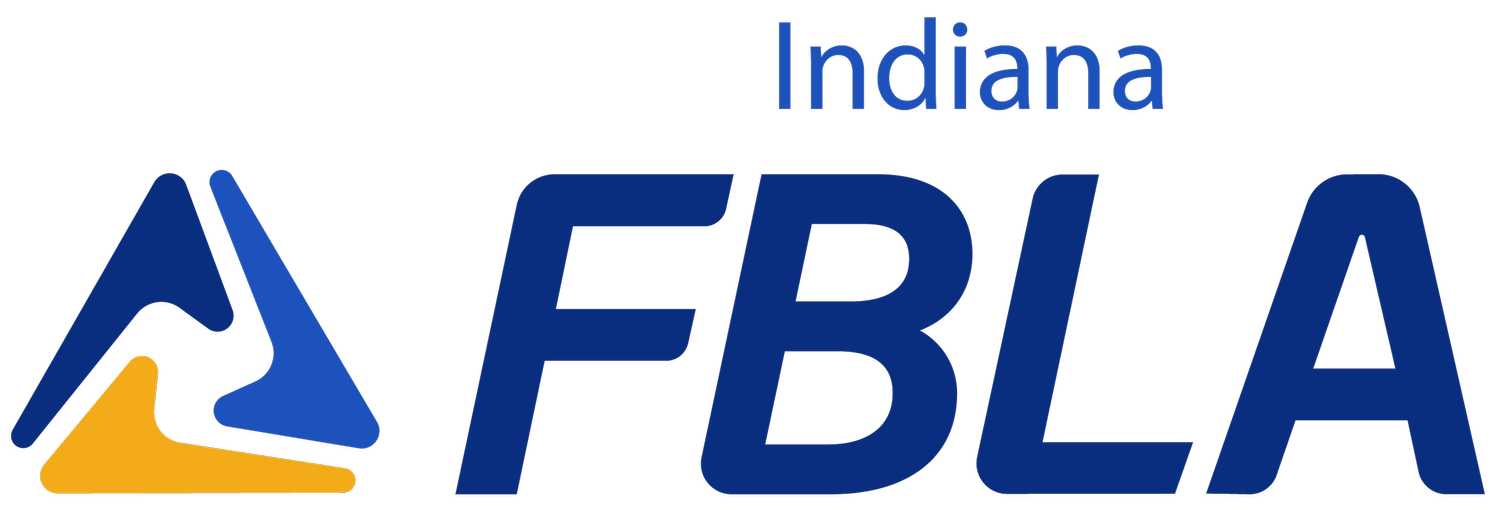About FBLA
Future Business Leaders of America is a nonprofit 501(c)(3) education association with a quarter million students preparing for careers in business and business-related fields. The association has four divisions:
Future Business Leaders of America (FBLA) for high school students;
FBLA-Middle Level for junior high, middle, and intermediate school students;
Phi Beta Lambda (PBL) for postsecondary students; and
Alumni Division for businesspeople, FBLA-PBL alumni, educators, and parents who support
the goals of the association.
FBLA-PBL is headquartered in Reston, Virginia, and organized on local, state, and national levels. Business teachers, advisers, and advisory councils (including school officials, businesspeople, and community representatives) guide local chapters. State advisers and committee members coordinate chapter activities for the national organization.
The FBLA concept was developed in 1937 by Dr. Hamden L. Forkner of Columbia University. The first high school chapter was chartered in Johnson City, Tennessee on February 3, 1942. In 1958, the first PBL collegiate chapter was chartered in Iowa. The Professional Division, originally the Alumni Division, now back to the Alumni Division, began in 1979. Joining FBLA-PBL in 1994 was the FBLA-Middle Level for students in grades 5-9. The national board of directors is comprised of local teachers, state educators, business leaders, and the division presidents.
Membership
FBLA-PBL is the largest business career and technical student organization in the world. The high school division has 215,000 members, while the postsecondary division reaches over 11,000 college students. The newest group, FBLA-Middle Level, is showing remarkable growth with over 20,000 student members. Finally, the Alumni Division has reached over 3,000 members. Over 11,000 advisers round out the group. Exclusive membership and career recognition programs are designed for each division to provide additional personal and chapter development opportunities.
Funding & Endorsements
FBLA-PBL, Inc. is funded by membership dues, conference fees, corporate contributions, and grants. FBLA-PBL is recognized by the Association for Career and Technical Education, International Assembly for Collegiate Business Education, National Association of Parliamentarians, National Association of Secondary School Principals, National Business Education Association, and the U.S. Department of Education.
Competitive Events Program
FBLA-PBL's National Awards Program recognizes and rewards excellence in a broad range of business and career-related areas. Through state-based competition at the spring State Leadership Conferences, students compete in events testing their business knowledge and skills. Top state winners then are eligible to compete for honors at the National Leadership Conference each summer.
Publications
These publications bring fresh ideas, new direction, and network-building news to FBLA-PBL members and advisers. Published four times a year, Tomorrow's Business Leader is the exclusive publication for FBLA and FBLA-Middle Level students and advisers. The Alumni Division receives the The Professional Edge.
Conferences & Seminars
FBLA-PBL sponsors conferences and seminars for members and advisers. These programs are designed to foster the development of business leadership skills.
National Leadership Conference
FBLA-PBL members have the competitive edge, as the best and brightest of FBLA and PBL convene to compete in leadership events, share their successes, and learn new ideas about shaping their career future through workshops and exhibits. This four-day conference is considered the pinnacle of the FBLA-PBL experience, especially for those running for national office. FBLA-PBL has forged partnerships with industry leaders to underwrite competitive events and scholarships for students achieving national ranking.
Institute for Leaders
Held in conjunction with the National Leadership Conference, this high-energy, intensive, two-day seminar is a focused-leadership experience for state and local chapter officers, as well as members and advisers.
National Fall Leadership Conference
Each fall, new leaders and advisers from chapters across the nation gather for one of two conferences designed to guide and motivate their success for the year. This includes workshops, seminars, exhibits, and general sessions, as well as the benefit of networking among their peers from other cities and states.
FBLA Creed
I believe education is the right of every person.
I believe the future depends on mutual understanding and cooperation among business, industry, labor, religious, family and educational institutions, as well as people around the world. I agree to do my utmost to bring about understanding and cooperation among all of these groups.
I believe every person should prepare for a useful occupation and carry on that occupation in a manner that brings the greatest good to the greatest number.
I believe every person should actively work toward improving social, political, community, and family life.
I believe every person has the right to earn a living at a useful occupation and that this right should not be denied because of race, color, creed, sex, or handicap.
I believe every person should take responsibility for carrying out assigned tasks in a manner that brings credit to self, associates, school, and community.
I believe I have the responsibility to work efficiently and to think clearly. I promise to use my abilities to make the world a better place for everyone.
Goals
Develop competent, aggressive business leadership.
Strengthen the confidence of students in themselves and their work.
Create more interest in and understanding of American business enterprise.
Encourage members in the development of individual projects which contribute to the improvement of home, business and community.
Develop character, prepare for useful citizenship, and foster patriotism.
Encourage and practice efficient money management.
Encourage scholarship and promote school loyalty.
Assist students in the establishment of occupational goals.
Facilitate the transition from school to work.
